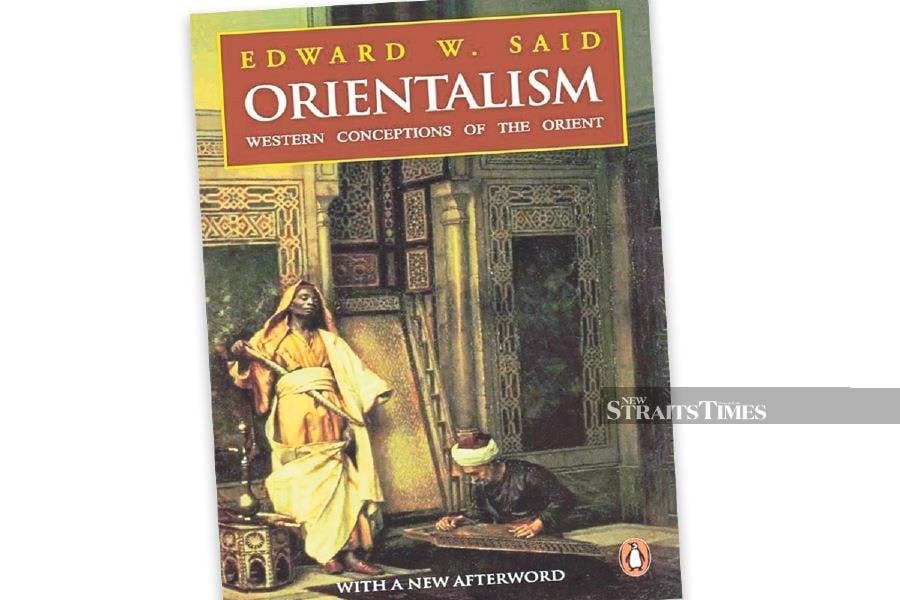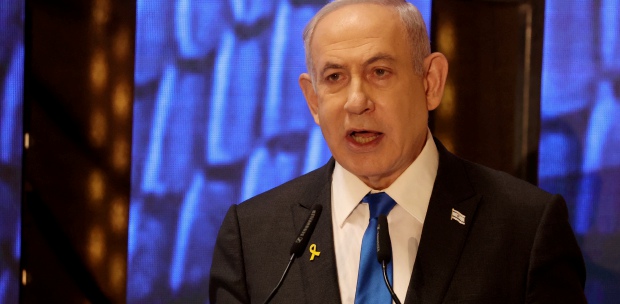IN 2018, news portal Middle East Eye (MEE) covered the 40th anniversary of the release of Edward Said's work Orientalism.
Five years on, in its Sept 15 issue, the MEE blasted its essay with the headline, "Orientalism at 45: Why Edward Said's seminal book still matters".
Italian journalist Lorenzo Forlani reminds us of the 45 years since the release of Orientalism in 1978. The book, among other things, makes media representations matter.
We have seen why in the 1979 Iranian Revolution, post-9/11 and Islamophobic narratives, and in the coverage of Muslims and Islam in Europe or in Asia.
Orientalism provides the framework for identifying and analysing the myths and stereotypes about the East, Islam and Muslims, that have long dominated Western discourse.
Decades later, there is greater awareness of the harm perpetuated by such constructs, particularly those pitting Islam against the West, which, according to Said, are "perceived as a discourse of power originating in an era of colonialism".
Not much has changed, even in the media and scholarship in non-Western societies.
Ironically, Orientalism supplies the West with an ideology, that of dominance and colonialism.
The Oriental is always analysed through Western scholars' Occidental lens and regarded as ontologically unequal.
Napoleon's invasion of Egypt in 1798 was argued to be the beginning of the modern phase of Orientalism.
It took on a scientific character in Description de l'Egypte, a massive volume published between 1809 and 1828.
This was described by Abd al-Rahman al-Jabarti, a chronicler of the times, as an "epistemological conquest, other than military".
We find that the French military force was accompanied by around 160 Orientalists, or explorers and researchers who documented their "objective" observations during the conquest of Egypt.
These scholars worked to facilitate the domestication of future colonies while relying on confirmation bias and centuries-old beliefs about the Orient.
Napoleonic Orientalists were a product of this colonial, hence hegemonic, relationship, with produced scholarship being an attempt at assimilating an Orient that was marked by a "constitutive otherness".
In other words, we have allowed ourselves to be orientalised. This set the Oriental tradition over the next 200 years.
Forlani explains that the discourses would lay the foundation for a twofold approach: on one side, especially from a vaguely left-wing posture, a paternalistic one ("Orientals need our guidance/help"); on the other, a more right-wing, racist attitude ("Orientals are savages").
We see this daily in the Western media through (read BBC, for example) "the Middle East" and North Africa.
Another example is from chapter 34 of Modern Eqypt, a two- volume account of British occupation of Egypt published in 1908 by the colonial administrator, Evelyn Baring, or Lord Cromer.
The chapter goes as follows. The European is a "close reasoner" and devoid of ambiguity; he is a natural logician even though may not have studied logic; he loves symmetry in all things; he is by nature sceptical and requires proof before he can accept the truth of any proposition; and his trained intelligence works like a machine.
The mind of the Oriental, on the other hand, like his picturesque streets, is eminently wanting in symmetry.
His reasoning is of the most slipshod description. He is often incapable of drawing the most obvious conclusions from simple premises.
We still have culture wars. Muslims are said to be averse to the thorough processes of rationalism.
Hence, newspapers, periodicals and the popular media continue to propagate the idea of non-Europeans as terrorists, savages and incapable of thinking. And of the myth of lazy Malays.
We would argue that media outlets and politicians regularly invoke Orientalist tropes depicting Arab and Muslim cultures as backwards and incapable of change.
Yet when demands for political and social change trigger mass movements in these countries, Western governments are quick to call for "stability" and "containment" of so-called fanatical populations.
What seems to be is that Muslims are not fit for democracy but only democracy as defined by the West. Said did not offer any solution. But he rejects explicitly "occidentalist" discourses, and reminds us of adopting "reverse orientalism" — subscribing to Asian values, or believing in the assumptions of "development politics".
Said did not attack the West, nor did he defend the East.
Being alert to such misreadings in media, academic discourses and policy circles do matter.
The domain of Islamic Studies in Malaysia and other Muslim countries is no exception.
The writer is professor of social and intellectual history, International Institute of Islamic Thought and Civilisation, International Islamic University Malaysia





